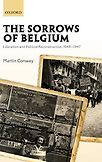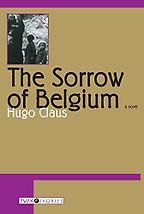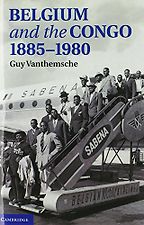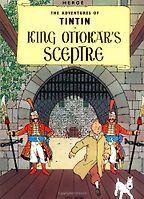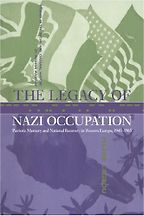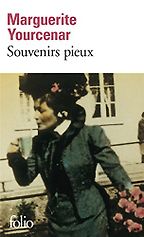Historically speaking, what is Belgium?
Belgium is a cultural reality, nowadays, more than a geopolitical entity. The essence of Belgian political unity has been hollowed out in all sorts of ways, notably through its participation in the European Union, but also through a series of federal reforms from the 1980s onwards. This means that much of the power in Belgium is no longer with the central state, but with the regions, notably Flanders and Wallonia.
That is not a bad thing or the demise of Belgian identity. In a way, the change in the structure of the state means that Belgium is free to be other things. In particular, it’s free to be a cultural identity. All sorts of opinion polls and sociological surveys show that people who live in Belgium share similar values, on the whole.
It also means that Belgium is a historical identity which people debate and discuss. Belgium is a country where people talk about recent history—the last 150 years or so—really quite intensively, in a way which is gratifying to historians. People are not trying to stage a civil war by other means, they are trying to talk about the way in which Belgium means something and why it was, for example, that so many Belgians got involved in fighting two World Wars, and not always on the same side.
Finally, Belgium also works as a cultural space. Belgians are rightly proud of the wealth of their own culture, both the culture they’ve produced and the culture that now inhabits the country. Belgium is, after all, a country of ten million people. Nowadays, it predominantly has a high standard of living (but with real disparities too), a high standard of education, and a real engagement in talking about cultural issues.
So the books you’ve chosen are about Belgium, which means that they date from after 1830, as that’s when the country was created.
Yes, it was created by a revolution that led to a treaty that led to the area that we now call Belgium breaking away from the Netherlands. It had only been with the Netherlands since 1815. Before then, it had been with France, and before then it had been with Austria. Before then, it had been with Spain. All of which produces a certain irony, shall we say, in Belgian attitudes to their own past, and to their rulers.
They’re very used to the idea that Belgium changes its affiliations, changes its borders, and that the degree of sovereignty it exercises evolves. This has made Belgium very resilient, during the 20th century, to two periods of German occupation in 1914-18, and again from 1940 to 1944. There wasn’t a sense that this was some fundamental crisis in the nation’s history. It was an immediate crisis, but this wasn’t something that threw everything into question. The question was always: What next? How do we recover our freedom? How do we recover a certain independence?
The history of Belgium is incredibly confusing. ‘Belgium’ was originally a Roman province, I believe?
The most influential historian of Belgium in the first half of the 20th century was Henri Pirenne, who wrote this amazing, ‘longue-durée’ history of Belgium. He did indeed start with the Romans and explained how the previous 2000 years could be explained in terms of the fight of Belgium for its independence. He was writing around the 1910s/1920s at a time when that was the flavour of the month. But it’s not a thesis that any historian would wish to tie themselves to nowadays.
However, there is a lively and interesting debate about how long Belgium existed before 1830 and how far there was a sense of Belgian-ness back in the 1780s when the area was ruled from Vienna as part of the Habsburg Netherlands. There’s also a contrary argument about, ‘How long did it take after 1830 for people to really feel themselves to be Belgian?’ That second argument is associated now with the Flemish movement and a reluctance on the part of many people in Flanders to believe that membership of Belgium was anything other than imposed. It was created by the state of 1830 and, to some extent, it was simply put on top of Flanders, creating from the outset a tension within Belgian society.
“For a historian, there’s a really rather gratifying sense that history matters in Belgium”
When strains developed, especially during the two World Wars, certain elites in Flanders opted against Belgium in favour of Germany or some notion of Flemish independence. That sort of argument can be used to say that Belgium was always an artificial state and was not really a state that was at home in the hearts of people.
Of course, these are complicated issues and the answers would not be straightforward or brief. Much depends on which section of the population one is talking about, and at which moment. But what makes Belgium really quite interesting as an identity is that people don’t take it for granted, they want to talk about it.
Let’s go through the books you’ve chosen, of which the first is a novel, Het Verdriet van België, written in Flemish by Hugo Claus and known in English as The Sorrow of Belgium.
Yes, this is a novel that works well in all three languages. It was written in Flemish Dutch. It’s full of Flemish slang and not easily readable—I would suggest—by some people from the Netherlands because it contains quite a lot of loan words from other languages and is full of dialect. Claus was a rather crazy, disorganised 1960s figure, but certainly saw himself as an intellectual. Above all, he saw himself, as many Belgian writers have done, as somebody who had escaped the suffocation of his upbringing by running away to Paris (Georges Simenon might be a similar case).
All of that comes through in this complicated novel which operates at all sorts of different levels, but might be most simply described as a coming-of-age novel. It’s about a boy from provincial Flanders and all the ghosts that haunt him—ghosts from the World Wars, religion, and family disputes that have never been resolved. It’s crazy, picaresque writing. It perhaps doesn’t work all the way through, but nobody could read it and not feel that they had acquired a sense of what Belgium was really about. In that sense, he’s the sort of literary equivalent of the songs of Jacques Brel.
What period does it cover? Is it the Nazi occupation?
Yes, it starts in the 1930s. It’s inhabited by issues of Flemish nationalism and collaboration with the Germans. It also makes references back and forwards and it’s a great deal of fun. There are moments when any reader of it can end up a little confused as to what is going on—and perhaps Hugo Claus needed a better editor—but, as a whole, it is an emphatically successful evocation of what it was like to live in that corner of north-western Europe through the middle of the 20th century.
I was surprised to find the book opens with the boys being educated by nuns. It’s a very Catholic country, isn’t it?
Yes, one of the first facts about Belgium is that it is—was?—a very Catholic society. Particularly in provincial Flanders, the weight of Catholic belief, Catholic participation, Catholic influence in education was very, very strong. Belgium was not a secularised society, as a whole. Of course, there were secular currents within it, but Catholicism was a dominant cultural influence right through to the 60s and some would argue since then too.
Do you think you need to understand a bit of the history of Belgium to read the book?
I think you can just plunge into it. It would help to have a certain historical literacy about the two World Wars but once you get into it, you can enjoy it for what it is, as a study of the way in which the values of a wider society impinge upon someone growing up in that society.
The next book on your list is a very recent one. This is Belgium and the Congo, 1885-1980 by Guy Vanthemsche. You’ve described this as the most modern, serious account of this part of Belgian history. Is it the best account?
Yes, I think so. There are a whole series of studies of the Congo, some of them written with a strong sense almost of wanting to put the Belgians on trial for their engagement with the Congo. This is a book which tries to get beyond those sorts of disputes. It sets out the complicated interrelationship between sections of Belgium and the Congo.
We’ve got to remember that the Congo emerges in Belgium’s history somewhat by accident, in the sense that it was the product of an initiative by the king at the time—Leopold II—to create the Congo Free State. It was to be an independent entity, largely financed by his own funds, but soon became a source of finance for his own funds. It was when crises developed about the governance of the Congo in the early 20th century that Belgium, and Belgium’s parliament in particular, took over responsibility for it and turned it into something like a colony, much like other sections of Africa were divided up between other European states.
Belgian engagement with the Congo was always limited to rather specific lines. It was obviously related, again, to Catholicism and to missionary activity and the role that the church played in education and health. But it was also to do with economic interests and the discovery of various mining assets in the east of the Congo, which meant that banks like the Société Générale became very engaged with the Congo. The idea that this is “our colony” is something that only, I suspect, developed very briefly in Belgium, largely after World War II, when it becomes tied up with the whole notion of modernisation and how, by having the Congo, Belgians are somehow proving themselves to be a modern European society. But then all that comes crashing down in 1960-61 when Belgium retreats very quickly and precipitously from the Congo, and leaves Belgians debating whatever it was that caused them to be there in the first place.
Guy Vanthemsche’s book is a very good book because it isn’t just about the Congo, it’s a book about Belgium as well and he tries to explain the dynamics and the relationship between the two.
In the introduction, he says that the book is about the impact of the Congo on Belgium rather than the other way around. But for the Congo, is there a sense that its experience was substantially worse than other colonial experiences?
I don’t know how one measures those indices of colonial crimes. The British could easily be put in the same category.
What’s true of the Congo is that it was, first of all, a very difficult area to govern in any effective way—not least due to its size and the distribution of the population. The other is that it was such a belated acquisition in Belgian life—it only really got going as a serious entity in the 1920s, once Belgium had been liberated from German rule—with the consequence that the ability of the Belgian authorities to establish effective control over different areas of the Congo was quite limited and left space for all sorts of forms of abuse and exploitation.
World War II is another complicated period because the Belgian administration of the Congo is cut off from the motherland. It had links with the Belgian government-in-exile in London but it didn’t have any resources coming to it from London, so, again, the Congolese authorities were left to fend for themselves. Thus, the period when Belgium was able to exert effective control over the Congo was really very limited.
Let’s go on to the third book on your list, which is a Tintin book: King Ottokar’s Sceptre by Hergé.
It can be a bit of a cliché to refer to Hergé when talking about Belgium, but it’s difficult to resist him because of the power and wit of some of his early books. I think he becomes less effective by the 1950s. Hergé was a product of a very particular right-wing Catholic journalistic milieu in the 1920s and it is slightly accidental that he is known now for the Tintin books. He was somebody who was producing cartoons and visual material across a whole range of different fields, including getting involved through friends with various extreme-right activities in the 1930s.
But he found in his production of Tintin cartoons an outlet for his slightly surreal sense of reality—which is often said to be a characteristic of Belgium. He deliberately adopts seeing the world through a child’s eyes—Tintin’s eyes—which means that he can talk about all sorts of things which would be more difficult to do when you’re using an adult character.
That’s certainly true in the case of King Ottokar’s Sceptre which is one of four or five of the Tintin books which really hit home in Belgium. This one hits home because you have lots of amusing stuff at the beginning about Brussels and different sorts of rather foolish intellectuals and scientists. There’s a sense of some sort of fraud being perpetrated but it’s difficult to work out what it is. Then it becomes clear, in the latter half of the book, that it’s about a character called King Ottokar who rules a country called Syldavia which is somewhere in the Balkans.
“He found in his production of Tintin cartoons an outlet for his slightly surreal sense of reality—which is often said to be a characteristic of Belgium”
But King Ottokar looks and feels like the Belgian king himself—King Leopold III—who had become very controversial within Belgium because of his choices in the war years. He had chosen to seek rapprochement with the German authorities rather than going into exile. So this idea of a slightly martyred king who’s being done down by bad people is something that could be seen very clearly as being an allegory of Belgium at the time. For me, it’s one of the most interesting of the Tintin books— alongside Tintin in the Congo and Tintin in the Soviet Union—where you can actually see a series of different political messages coming through in the book, while at the same time being just a very successful adventure story that children of all ages enjoy reading.
But the king in the book comes across completely as a goodie, doesn’t he?
Yes, absolutely. This is about rehabilitating Leopold III as a good king who has fallen victim to malicious plots. That, of course, reflected Hergé’s own view, which was that Leopold III was a splendid person who was being done down by socialist/communist/freemasonic/liberal and even possibly Jewish manipulation.
Do you agree with him at all?
No, I don’t. There is much to say about King Leopold III and I’m not about to contribute to damning his reputation, but clearly a lot of the problem with his supporters—including Hergé—was that they never really took ownership for the mistakes that Leopold had made at various points during his time as monarch.
Not knowing about Leopold prior to speaking with you and trying to find out about him online, it was quite hard to tell whether he was a goodie or a baddie.
I think the best way of approaching it would be to say that if you decided to have a Sunday lunch with any Belgian family with a fairly long memory and asked them, after a few glasses of wine, what their family thought about King Leopold, you would get a very long and heartfelt response. It’s something that remains a subject of real discussion and debate in Belgian society, even at a time when there are very few people alive who were participants in that debate.
Briefly put, Leopold chose to remain in Belgium under German occupation. He sought some sort of alignment with the Germans; he rejected the government in exile which he said he had renounced because it had rejected Belgian neutrality.
When the Allies returned to liberate Belgium in 1944, Leopold had been taken off into exile by the Germans. He remained in exile until 1950 when the Catholic government in Belgium decided to bring him back after a referendum—a familiar tool in modern European history—in which 57 per cent of the population had voted for his return.
But when he came back, it became clear that the majority was not sufficient to build a basis of support in the country. There was a general strike and the parliamentarians lost their nerve about the whole project. They managed to convince Leopold, very reluctantly, to abdicate in favour of his eldest son, Baudouin, who became king in 1951. But Leopold III didn’t disappear. He remained living quietly in Belgium until his death in 1983. There was always a strong sense of passionate debate about whether this outcome had been the right one.
Let’s move on to the next book. This is The Legacy of Nazi Occupation, 1945-65 by Pieter Lagrou. It’s about three countries, but including Belgium.
This is probably my most serious historical choice. This is me trying to point to the fact that I am a historian and that the history of Belgium in the 20th century is really rather important. This is a book about the way in which Belgium and neighbouring states sought to recover a sense of national identity after 1944. It’s a very successful book and one that’s often referred to by other historians.
It shows the way in which the capacity in Belgium to create a national myth about World War II was really quite limited. In contrast to France or the Netherlands, where there was a really quite determined attempt by the state, by educational institutions and social bodies, to provide a particular narrative about what had happened during the war, in Belgium this was rarely the case. Perhaps it was because the state was less powerful, less generally accepted and more contested because of Leopold. And, therefore, the different sections of Belgian society set about creating their own memories of the war.
Consequently, the memory of the war in Belgium therefore became very contested, particularly about whether the decision taken by some Flemish elites to get involved in collaboration with the Nazi regime had been the correct choice.
“People don’t know how many famous Belgians there are because they don’t remember that people actually were Belgian”
So, this is a book that tries to analyse the different forms of memory of the war that emerged in Belgium after 1944. The most striking feature was the emergence of a whole range of views from communist resistance through to various forms of neo-right rhetoric being voiced by some of those people who had been collaborators. It’s a complicated book but a very rich book for understanding, I would suggest, any European society in terms of the difficulties that it experienced in recovering from national defeat and occupation. Above all, it gives a good sense of how complicated Belgium was and is, but in a good way.
Coming from the Netherlands, there’s very much a sense of ‘we resisted the Germans and we got rid of them’. French people also appear to all have fought in the resistance. Do you think that Belgians have a more realistic sense of their history than France and the Netherlands, as a result of not having had a more coherent narrative?
Yes, I would say so. In a sense, it’s been left for each section of Belgian society to create their own myths about the war rather than having a central Gaullist myth, as in France. It’s much more the sense of different sections of Belgian society providing different versions of what the war experience had been.
But Belgium is also a society that puts a great deal of emphasis and value on private or family memory. What’s very striking about Belgium is the extent to which family memories of which side they had been on, and what the nature of their war experience had been, is carried forward into the present day. You now have people in their third generation who still want to talk about this.
One of the big features of Belgian history in the last couple of years has been a large public history project that goes under the rather jokey title of ‘Was Grandpa a Nazi?’ This is really an attempt by the Belgian authorities to open up the archives and make it possible for people to discover their own family history. The authorities are quite rightly aware that a lot of grandchildren are keen to understand the choices their grandparents may have made during the war—not necessarily about having been a fascist, but perhaps about being a resistor, or a deported person. There are all different versions of war experience.
But that sense that wartime memories are still quite central to family history and family debates about who we are lies at the heart of this. Again, for a historian, there’s a really rather gratifying sense that history matters in Belgium.
Your own book, The Sorrows of Belgium, is about the turbulent post-war period. Can you say a bit about why you chose that title?
It’s a pun on the Hugo Claus book, but I hope it’s also a book in its own right, which tries to understand why it was so difficult to put Belgium back together again at the end of the war. In the end, there was quite a successful politics of reconstruction based around the Socialist Party and others, which looked as though it had created a new Belgian state to go forward into the post-war period.
But what’s different about the Belgian experience of the post-war era—compared to most other states of western Europe—is that, essentially, within twenty or thirty years, Belgium was suffering from a whole series of linguistic and socioeconomic arguments which have led to the federalisation of the state and an emptying out of any sense of central Belgian national identity. My book is an attempt to try to understand why that was so. It aims to look at the war years but also the processes that followed the war, and perhaps some of the choices that weren’t made, for instance: the decision not to change the constitution, the decision not to carry out widespread social reform, and the decision not to devolve power to regions. These forms of immobility created some of the problems which then came back to haunt Belgium from the 1960s onwards.
Are you surprised that Belgium is still a monarchy?
No, and I don’t think any Belgian would be surprised either. Belgium almost had a monarchy before it had a country, in the sense that Leopold I was imposed as monarch in 1831. He came from the Saxe-Coburg/Hanoverian stock of underemployed princes, but, once he arrived, the issue of Belgium having its identity as a monarchy became really quite central to the project of being Belgian.
It’s very difficult to think of Belgium as being anything other than a monarchy. In 1951, the president of the Belgian Communist Party—a man called Julien Lahaut— stood up in parliament at the peak of the disputes about Leopold III and said “Vive la République!” (“Long Live the Republic!”). He’s almost the only person ever to have uttered those words in Belgium. What happened to him was that he was murdered by some former resistance activists a few days later in circumstances that still remain rather unclear.
Five Books interviews are expensive to produce. If you're enjoying this interview, please support us by donating a small amount.
The project of a Belgian republic would be a very difficult one because it would, for example, raise all sorts of questions about where power should reside—in the regions or at the centre—and so on. In particular, it would require a compromise between the different versions of Belgium which can all hide under the protective cloak of monarchy: a more Catholic version, a more socialist version, a more working-class version, a more middle-class version. These are real divisions in terms of what Belgium means and, somehow, the monarchy provides the means of reconciling those divisions.
The monarchs have not always been popular. Everybody always said that when Albert II abdicated in favour of his son Philippe, that that would be the end of the monarchy. But, in fact, Philippe has proved to be a reasonably popular Belgian king. And it helps if the football team is winning too.
Lastly, you’ve chosen Souvenirs pieux by Marguerite Yourcenar, translated into English as Dear Departed.
People don’t know how many famous Belgians there are because they don’t remember that people actually were Belgian. That’s to some extent true of Hergé and Simenon, but it’s also true of Marguerite Yourcenar, who is one of the leading female writers in France in the 20th century. But, if you want to look at her place of birth, she absolutely was Belgian. She was brought up in one of the upper-bourgeois areas of Brussels in the late 19th century.
This set of memories about her childhood is a very evocative and powerful book. People often refer to it as their favourite book from their youth. It’s very influential when people read it as teenagers, especially women, perhaps. It has something of a coming-of-age book, about female identity, but at the same time—and especially for historians—it’s a marvellous evocation of this very privileged world that she lived in, in the Avenue Louise, one of the posher areas of Brussels. It’s a book that very much brings home the richness of that Belgian society. Perhaps it should be my first book rather than the last, because it’s a time of a certain innocence: a time before World War I, a time when Belgium seemed to be the epitome of modernisation, of progress, of new forms of sophisticated living, and of a rich cultural life that would be, to some extent, blown apart by the arrival of the German occupiers in 1914.
She writes a lot about her mother and her mother’s family, is that right?
Yes. We’re going back here now to the Belgian preoccupation with family, where people often think about their identity and where they came from in terms of their family and their locality. That’s very similar, in a strange sort of way, to the very different approach of Hugo Claus. Where he’s trying to come to terms with the Catholic provincial past he came from in Flanders, Marguerite Yourcenar is trying to understand the particular, very different, upper bourgeois—even aristocratic—world that her family came from in Brussels.
Get the weekly Five Books newsletter
I just know her as the first woman elected to the Académie française, so I presumed she was French.
Yes. The French are quite good at claiming Belgians as their own. One could produce a whole series of 20th-century writers who were in fact Belgian and not French.
Do you think that Belgians themselves are a bit in denial about their Belgian-ness sometimes?
They rather enjoy the game of being Belgian while saying to themselves and to each other that perhaps we shouldn’t take this terribly seriously and that, in the end, national identity is not something that is central to who you are. I think that all the books that I’ve been talking about are ones that focus around this tension between a national identity and more personal, local and familial dimensions of identity. I think those local, familial senses of identity are, on the whole, the sorts of identity that people in Belgium have taken more seriously than the trappings of tricolour flags and great national moments, apart of course from football.
Five Books aims to keep its book recommendations and interviews up to date. If you are the interviewee and would like to update your choice of books (or even just what you say about them) please email us at [email protected]

